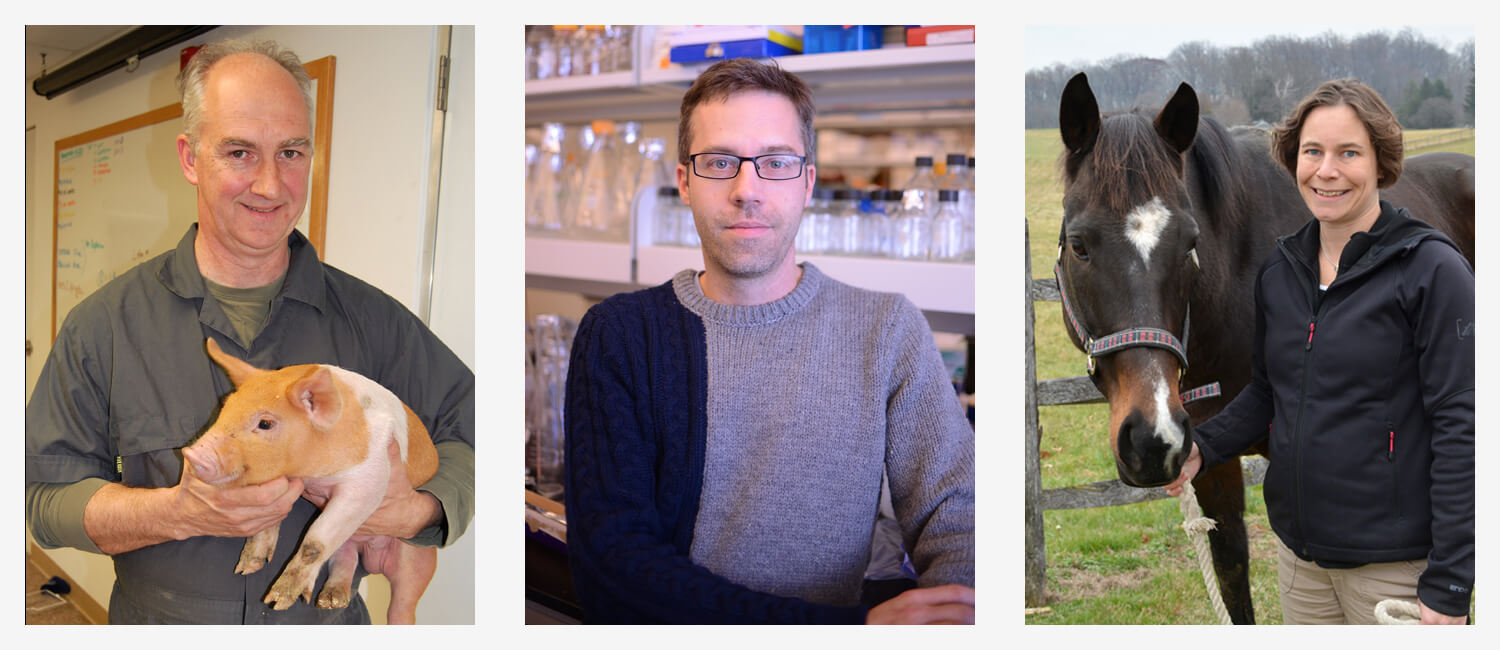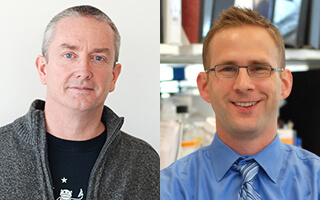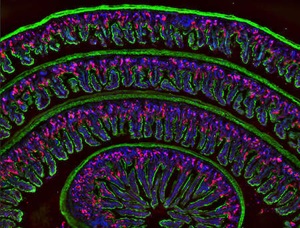 Thomas Parsons, Christopher Lengner, and Amy Johnson
Thomas Parsons, Christopher Lengner, and Amy Johnson
Congratulations are in order for three Penn Vet faculty members recently appointed to endowed professorships. Thomas D. Parsons has been appointed the Marie A. Moore Professor of Animal Welfare and Ethics, Christopher J. Lengner has been appointed the Harriet Ellison Woodward Associate Professor of Biomedical Sciences, and Amy L. Johnson has been appointed the Marilyn M. Simpson Associate Professor of Equine Medicine. The appointments will go into effect on July 1, 2022.
You can read more in the Penn Vet News Room and Almanac.
 Dean Andrew Hoffman, Mark Oyama, and Rebecka Hess
Dean Andrew Hoffman, Mark Oyama, and Rebecka Hess
Dean Andrew Hoffman and Professors Mark Oyama and Rebecka Hess were recognized as newly elected Fellows of the College of Physicians of Philadelphia at a reception on November 19, 2021.
The College of Physicians of Philadelphia, founded in 1787, is one of the oldest professional medical organizations in the United States. Throughout its history, the College has provided a place for medical professionals and the public to learn about medicine as both a science and as an art. Fellows of the College are part of a distinguished legacy of leaders who have served the mission of advancing the cause of health while upholding the ideals and heritage of medicine.
You can read more about Dean Hoffman’s appointment in the Penn Vet News Room.
 Christopher Hunter and Daniel Beiting
Christopher Hunter and Daniel Beiting
Christopher A. Hunter, Mindy Halikman Heyer Distinguished Professor of Pathobiology, has been selected as this year’s recipient of the Michael P. Nusbaum Graduate Student Mentoring Award. This award recognizes Professor Hunter’s caring and dedication as a mentor and his longstanding contributions to the Biomedical Graduate Studies (BGS) community, mentoring students in his own lab, and within the broader BGS parasitology, microbiology, and immunology communities.
Daniel P. Beiting, Assistant Professor, has been selected as this year’s recipient of the Jane M. Glick Graduate Student Teaching Award. This award recognizes excellence in graduate teaching and/or innovation in teaching methods or approaches. Dr. Beiting is well-known throughout Biomedical Graduate Studies (BGS) for his exceptional dedication to teaching of analytical methods to analyze large datasets, and his classes are widely recognized throughout the BGS community as models of excellence in teaching students complex methodologies that they can apply to their own research.
Congratulations to Drs.
Ronald N. Harty and
Bruce D. Freedman whose article, “
WWOX-Mediated Degradation of AMOTp130 Negatively Affects Egress of Filovirus VP40 Virus-Like Particles,” was selected as a “Spotlight Article” in
Journal of Virology. One of their images (at right) was chosen for the cover of the March 2022 issue of the journal.
Dr. Bethan Wallbank, a postdoctoral researcher in the laboratory of Professor Boris Striepen, won this year’s “Art in Science” competition hosted by the Perelman School of Medicine’s Biomedical Postdoctoral Programs.
Dr. Wallbank provided the following description of the photograph:

This is a fluorescent image of a slice of mouse small intestine infected with the enteric parasite Cryptosporidium parvum. This parasite has adapted to survive in this rapidly turning organ in which it carries out its entire lifecycle. Parasite infection leads to increased turnover of the small intestine. I have demonstrated this by administering EdU, a thymidine analog that incorporates into newly synthesized DNA, to infected mice. The use of a fluorescent label that binds to EdU (shown here in red) identifies newly proliferated cells and their migration out of the crypts. By imaging over the course of infection we can track this migration over time. Chemically and genetically altering epithelial migration allows us to understand the role of intestinal turnover in parasite survival and host defense. Red = EdU (fluorescent azide), green = actin (phalloidin), blue = nuclei (Hoechst).